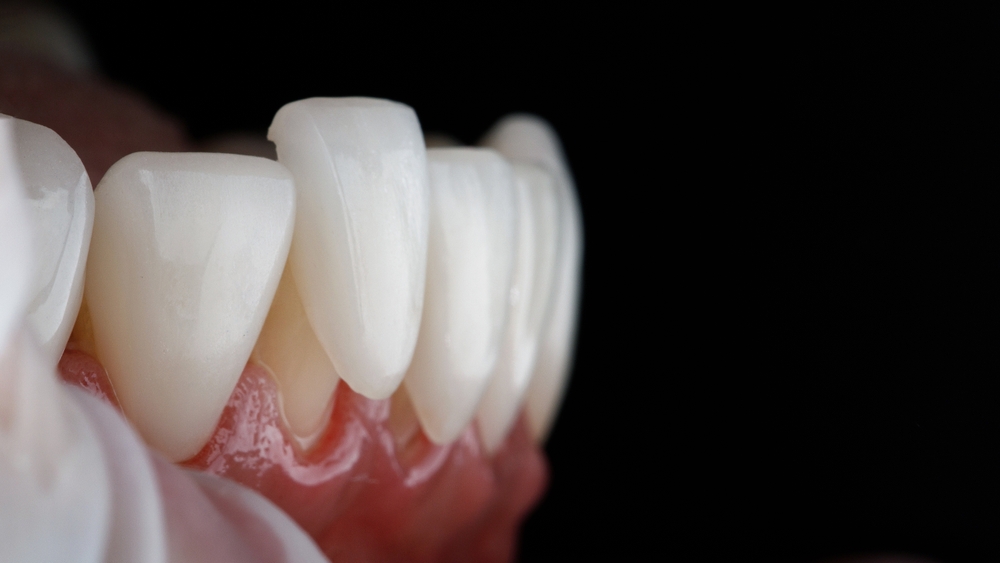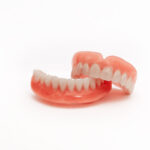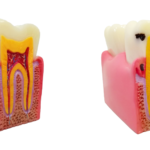Veneers vs Dentures
Veneers are cosmetic enhancements for existing teeth, while dentures replace missing teeth. Both serve unique purposes in dental care.
Choosing between veneers and dentures can significantly impact your smile and oral health. Veneers are ideal for those looking to improve the aesthetic of their natural teeth, addressing issues like discoloration, chips, and slight misalignments. They provide a quick cosmetic solution without the need for extensive dental work.
On the other hand, dentures are essential for individuals who have lost teeth, restoring functionality and appearance. Understanding the differences between these options helps in making an informed decision tailored to your specific dental needs. Whether enhancing your smile or replacing missing teeth, both options can lead to greater confidence and improved quality of life.
Introduction To Veneers And Dentures
Veneers are thin porcelain shells that cover the front of your teeth. They improve the color, shape, and size of existing teeth. This makes them perfect for those with stained or chipped teeth. Veneers do not replace missing teeth, as they need a tooth to bond to. They provide a cosmetic enhancement for a beautiful smile.
Dentures are removable appliances that replace missing teeth. They help restore the structure of your mouth. Complete dentures replace all teeth, while partial dentures fill in gaps. Dentures can improve chewing and speaking abilities. They provide support to facial features, helping maintain a youthful appearance.
Aesthetic Goals With Veneers And Dentures
Veneers create a stunning, natural look by covering imperfections on the front of teeth. They are made from thin porcelain and bond directly to the enamel. This treatment is perfect for those with stains, chips, or slight misalignments. With veneers, smiles appear brighter and more uniform.
Dentures, on the other hand, serve a different purpose. They replace missing teeth and restore functionality. This option helps maintain the structure of the mouth and supports facial features. Many people feel more confident with a complete smile, allowing them to enjoy social interactions again.
| Aspect | Veneers | Dentures |
| Purpose | Enhance appearance | Replace missing teeth |
| Material | Porcelain | Acrylic or plastic |
| Functionality | Cosmetic | Restorative |
Functional Considerations
Veneers provide an effective solution for improving the appearance of existing teeth. These thin porcelain covers enhance color, shape, and size. They are perfect for those with stained, chipped, or slightly misaligned teeth. By bonding veneers to the front of teeth, a stunning smile can be achieved.
Dentures, on the other hand, are designed for replacing missing teeth. They help restore the structure of the mouth and improve functionality. Dentures come in various types, including full and partial options. Each type serves to fill gaps and support the remaining teeth.
Durability And Longevity
Veneers typically last between 10 to 15 years with proper care. They resist stains well, making them a popular choice for those seeking a bright smile. Regular dental check-ups help maintain their condition. Avoiding hard foods can also extend their lifespan.
Dentures usually last around 5 to 10 years. Their longevity depends on the material used and how well they are maintained. Daily cleaning and regular adjustments by a dentist can help improve their lifespan. Replacing them when they wear down is essential for comfort and function.
Procedure And Treatment Time
The process of getting veneers typically involves several steps. First, a dentist will assess your teeth. This includes taking X-rays and discussing your desired results. Next, a small amount of enamel is removed from the tooth. This helps the veneer fit perfectly. After that, a mold of your teeth is made. The veneer is created in a lab and then bonded to your tooth.
For denture fitting, the steps are slightly different. The first step is an initial consultation. During this visit, the dentist examines your mouth. Afterward, impressions of your gums and any remaining teeth are taken. This ensures a snug fit for the dentures. Then, a temporary denture may be made for you to try. Finally, after adjustments, your permanent dentures are placed.
Maintenance And Care
Caring for your veneers is essential for their longevity. Brush them gently with a soft toothbrush. Use non-abrasive toothpaste to avoid scratches. Regular dental check-ups help maintain their appearance. Avoid hard foods that can chip your veneers.
Maintaining your dentures requires daily attention. Rinse them after meals to remove food particles. Soak them overnight in a denture solution to keep them clean. Always handle dentures with care to prevent breaking. Regular visits to your dentist ensure a proper fit and comfort.
Pros And Cons
Veneers and dentures each offer unique benefits and drawbacks. Veneers enhance the aesthetics of existing teeth, ideal for those with minor imperfections. In contrast, dentures replace missing teeth, restoring function and appearance but may require adjustments and maintenance. Understanding these differences helps in making an informed choice.
Veneers offer several advantages. They improve the appearance of teeth, making smiles brighter and more attractive. These thin shells can cover stains, chips, or misalignments. The procedure is quick, and results are immediate. Potential drawbacks of veneers include their cost, which can be high. Not everyone is a candidate for veneers. Some may experience sensitivity after placement. Regular maintenance is needed to keep them in good shape.
On the other hand, dentures have their benefits. They replace missing teeth, restoring functionality and aesthetics. Dentures are often more affordable than veneers. They can be easily adjusted for comfort and fit. Limitations of dentures include the need for regular adjustments. They may feel uncomfortable at first. Staining and wear can occur over time. Proper cleaning is essential to maintain oral health.
Making Your Decision
Choosing between veneers and dentures requires careful thought. Several factors influence this decision. Consider the condition of your teeth. If they are damaged or missing, dentures may be the best option. Veneers improve the look of existing teeth. They cover stains and chips effectively.
Your lifestyle plays a role too. Dentures need daily maintenance, while veneers are easier to care for. Cost is another important factor. Veneers can be more expensive upfront, but they last longer. Think about your personal goals as well. Do you want a complete smile transformation or just a few enhancements?
Consulting with a dentist will help clarify your options. They can provide tailored advice based on your unique needs.
Alternatives To Veneers And Dentures
Dental implants offer a permanent solution for missing teeth. They consist of a metal post surgically placed in the jawbone. Once healed, they support a crown, restoring function and aesthetics.
Many people prefer implants because they feel like natural teeth. They do not slip or move, unlike dentures. Proper care can lead to a long-lasting smile.
Other cosmetic dentistry options include:
- Teeth whitening: Brightens stained or discolored teeth.
- Bonding: Covers imperfections using a tooth-colored resin.
- Orthodontics: Straightens teeth using braces or aligners.
Each option has its own benefits. Choosing the right treatment depends on individual needs and goals.
Frequently Asked Questions
Is It Better To Get Dentures Or Veneers?
Dentures replace missing teeth, while veneers enhance the appearance of existing teeth. Choose dentures for full tooth replacement and veneers for cosmetic improvements like color and shape. Your decision depends on your dental needs and goals. Consult a dentist for personalized advice.
Can You Wear Veneers With No Teeth?
Veneers cannot be worn if you have no teeth. They require a natural tooth surface for bonding. For missing teeth, consider alternatives like dental implants or dentures. These options restore both function and aesthetics effectively. Consult a dentist for the best solution tailored to your needs.
Do Celebrities Get Dental Implants Or Veneers?
Many celebrities opt for dental implants and veneers to achieve their perfect smiles. These cosmetic procedures enhance the appearance of teeth, addressing issues like discoloration, chips, and gaps. High-profile individuals often invest in their dental aesthetics to maintain a polished public image.
Do Any Celebrities Wear Dentures?
Yes, several celebrities wear dentures. Notable examples include Emma Watson and Ben Affleck. Many public figures use dentures to enhance their smiles, regardless of age. These dental solutions help maintain a perfect appearance on screen and at events.
Conclusion
Choosing between veneers and dentures depends on your specific dental needs. Veneers enhance the aesthetics of your existing teeth, while dentures replace missing teeth. Consider your oral health goals and consult a dental professional for personalized advice. Both options can lead to a beautiful smile, so choose wisely to boost your confidence.




